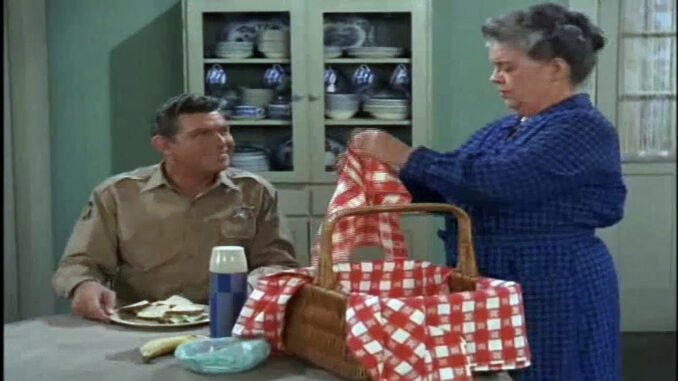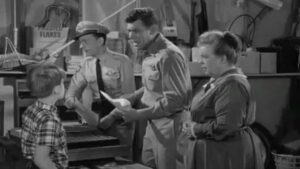
It’s been nearly 55 years since a new episode of the “Andy Griffith Show” aired on television – more than half-a-century since the gentle humored, small-town escapades of a sheriff and his deputy and the citizens in their care were featured on prime-time television.
Of course, many of us still catch an episode or two in reruns, where the characters hardly age, even little Opie, who in real-life turned 69 this past Wednesday.
Mayberry was a fictitious town, of course – or was it? The show was based on Andy Griffith’s hometown of Mount Airy, North Carolina, but many of us hail from “Mayberry” like villages all across America. That’s part of the staying power of the show.
In Baldwin, on the South Shore of Long Island, we didn’t have Floyd the barber, but we had Tony and Boris at the Grand Palace. We didn’t have the Snappy Lunch Diner, there was the Baldwin Coach. Otis never stumbled down our streets, but Eddie Collins sure did.

I was listening to a podcast the other day, during which time a gentleman mentioned a managerial tactic that has served him and his company well. He said that whenever one of his employees slip up, he has them to watch one of the 249 episodes of the 1960s classic sitcom. He then asks the offender to write an essay detailing the leadership lesson culled from that particular episode.
In an age of high-tech management gurus, it might sound downright silly to resort to an old television show to correct employee behavior, but the sitcom nevertheless gets the job done. Here’s just a few of the reasons why:
Andy Griffith was kind – but he was also always in control: Though a “hail-fellow-well-met” character, he was stern when necessary. In one of the most famous episodes titled, “The Birdman,” Opie kills a bird with his slingshot.
“I’m sorry, Pa,” Opie tells his father. “That won’t bring that bird back to life,” Andy responds soberly. “Being sorry is not the magic word that makes everything right again.”
Mistakes have consequences, and they’re not all equal. Friends of Sheriff Andy Taylor came to appreciate the fact that the best ability was responsibility.
Barney Fife was delightfully silly – and faulted like the rest of us: Played perfectly by Don Knotts for the first five seasons, Deputy Fife was earnest, affable and very full of himself. Walking out of church one Sunday, Aunt Bee and Sheriff Taylor compliment the pastor on his sermon. “Yes, sir, you really hit the nail right on the head there,” Griffith’s character tells Dr. Breen. Barney then adds, “Yes, sir, that’s one subject you just can’t talk enough about – SIN!”
Andy Griffith knew his audience – and he played to their sensibilities: Ron Howard recently revealed that whenever the cast or crew were getting weary, the star would bring up “Carl and Ethel” – a fictitious couple that Griffith said were watching the show at home and commenting on the filming.
“Carl, who sounded like a cranky relation of Andy’s back in Mount Airy, would butt in to say, ‘Well, Ethel, I think we can turn this off. It doesn’t make any sense!’” Howard recalled. “Or ‘Well, Ethel, I’ve been waitin’ 20 minutes to laugh at somethin’. Shoot, I’m gonna go get me somethin’ to eat!’”
We loved Andy Griffith and the Mayberry gang for many reasons, but primarily because it was a show about people caring and looking out for other people. In fact, the overarching theme of the Andy Griffith Show was a very biblical one at that – which is that the townspeople loved each other, cared for each other, and that when one person hurt everybody hurt – and vice versa.
George Lindsay, who passed away in 2012, and who played “Goober Pyle” the auto mechanic on the show, was once asked if he thought it would be appropriate to use the program as part of the basis for a Bible study.
“One of the incredible things about every single episode is that Andy insisted each show have a moral point, something good, lofty and moral,” Lindsay answered. “It’s a shame current shows on TV don’t adopt that high road.”
Like many other characters in Mayberry, Goober spoke truth.
